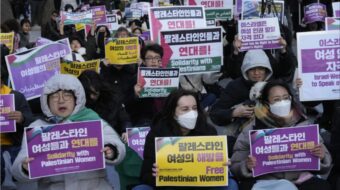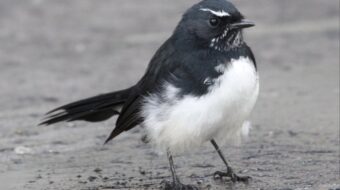Translated by Shelagh Rothero
(l’Humanite) The bee may have inhabited the earth for more than 80 million years- long before Man-and has survived all the upheavals of our planet, but its present situation has become a focal point for all countries involved in intensive agriculture. Although there are many reasons which could to explain the phenomenon, the most likely protagonist is to be found in the use of phyto-pharmaceutic products and particularly powerful pesticides especially the systemic neuro-toxics used to coat the seeds, such as the well-known Gaucho or Regent.
These hyper-powerful molecules coat the grains of seed and there are dozens of grams in one hectare. They protect the root system and remain in the plant system up to the time of flowering so that destructive pests are eliminated.
The research carried out by the National Institute for Agricultural Research (INRA) [1] and also the National Centre for Scientific Research (CNRS) has found that the presence of these molecules in pollen, even in minute doses, is enough to have a adverse effect on untargeted insects such as the bee, and that their durability in the sun can last for many years.
Poisoning takes place at the time of planting because part of the coating is dispersed into the air and spreads out, killing the pollen gatherers, also when the plants come into flower and the bees collect the nectar and pollen.
Beekeepers fought an unprecedented battle in the media and through the courts in order to persuade the market to suspend the authorisation of Gaucho on sunflowers in 1999, on maize in 2004 and of Regent in 2004. .
In spite of four victories won in the Council of State by the beekeeping unions (notably the UNA) the phyto-sanitary firms, who were concerned about the financial consequences, used considerable means of persuasion such as lobbying and refused to accept their responsibility. Instead, they continued to promote these molecules which are poisonous for the bees and the environment.
In the meantime, faced with the high mortality rate in apiaries the length of the Rhine valley, the German government suspended authorisation for putting any of these products on the market, with the exception of colza in 2008.
The Bayer Corporation has compensated the beekeepers, refusing to recognise the harmful properties of the molecule and blaming the quality of the drilling machines.
Italy, faced with many thousands of dead colonies on the wide plain of the River Po, withdrew authorization for these products in 2008.
France, a leader in matters of authorisation, approved the use of Cruiser in maize in 2008 despite opposition from beekeepers and environmental organisations who had taken part in the Environmental Round Table [2].
The bee produces honey but also has a highly important role to play as a pollinator in the processes of biodiversity and agricultural production.
According to the last research carried out by INRA and CNRS, 35% of the available resources on the planet rely upon insect pollinators, especially the bee. This applies to 65% of our food diversity. Without the bee there would be less fruit, fewer vegetables, fewer seeds and less oil-producing plants. In the global plan, the volume of trade created by the bee is estimated to be 152 billion euros.
Farmers and Beekeepers are complementary. If a constructive dialogue were to be established between farmers and nurserymen, market gardeners or greenhouse operators, it is still a sensitive issue for those of growers of maize strongly in favour of the expanding production.












Comments